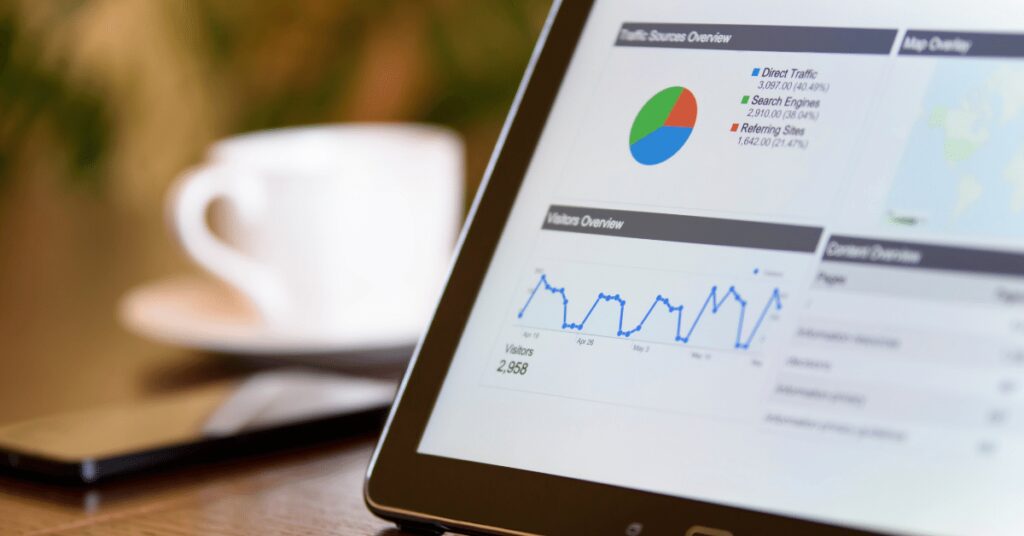Why advertising analytics matter, and how they help marketers better understand audiences, improve targeting, and make buying predictions to optimize digital campaigns.

Thanks to the proliferation of digital channels and advanced data analytics, reaching key audiences seems easier than ever before. However, reaching your target audience is one thing, engaging and understanding them is entirely another.
Following the onset of COVID-19, direct-to-consumer marketing and e-commerce continue to grow at exponential rates. In 2021 alone, retail e-commerce sales amounted to an estimated 4.9 trillion U.S. dollars worldwide. It is expected to grow by 50 percent over the next four years. Bringing it to about 7.4 trillion dollars by 2025, according to Statista.
We know that data and marketing will continue to be inseparably married. This will remain true as long as consumers lean on the internet for purchases. Without proper data analysis, however, marketers will not get insights that deliver value in helping them adapt and optimize their campaigns. As we push forward into the unprecedented world of digital-first buying, here are some of the ways that analytics will continue to play a role in improving digital advertising.
Understanding Your Audience
Understanding the audience you’re advertising to is a make-or-break function of an effective campaign. When ads are not effectively targeted to their appropriate audiences, marketers waste their budgets and their brand equity also takes a hit. Taking the time to understand which audiences you are targeting and the messages that will resonate with them is an essential step in the selling process. This can be accomplished by leveraging first-party data to give insight into who is clicking, their likes and dislikes, and their motivations to buy. This knowledge can also be taken a step further with advertising analytics.
Audience Segments
Through audience segmentation powered by data analytics, marketers can understand how you segment messaging to those various buckets of individuals. When marketers understand how their audiences break down, data can be further optimized and personalized to ensure potential customers revisit and re-engage with their brand.
Not only do customized segments help marketers create personal customer connections, but it also helps advertisers better understand what drives customers to make purchases. That data can in turn help drive leads down the sales funnel by personalizing messaging to their segmented groups to increase conversion rates and build customer retention.
Pinpoint Accuracy in Targeting
Effective targeting through advertising analytics is a positive feedback loop. Contrary to popular belief, directing a potential customer to your website is only the first step in the ad targeting journey. Following a visit to your company’s website, that visitor should be offered ample opportunity to engage with your brand in order to convert them into a customer. When successfully executed, this engagement will lead to an uptick in sales and produce additional customer data points.
Audience data can help marketers produce better, more effective content to reach untapped audiences in the same ecosystems. One way of ensuring you are reaching your key audiences is by considering the channels on which you are engaging with them. Perhaps data shows you that your audience is more active on platforms like TikTok, which could help inform your content creation and outreach strategy.
Predicting The Future with Advertising Analytics
We have established that data analytics can help marketers better understand who their audience is based on their past behaviors, but what about the future? How do we know that audiences will behave a certain way just because they have done so in the past?
Often, this game of tinkering with and adjusting your targeting is more art than science. The good news is that if you solicit more data, you will get closer to a scientific approach. With a data-driven strategy, AI-powered predictive analytics plays a critical role in helping marketers anticipate how customers will engage with brands.
Marketers must combine their user-generated data with predictive advertising analytics to get the best possible understanding of how their customers will behave. These data insights will naturally catalyze conversations around how to optimize marketing campaigns and help build customer loyalty.
BDEX is here to help marketers understand their audience and increase advertising success. To learn more about how BDEX is advancing data and analytics for advertisers, visit our website: https://www.bdex.com/



